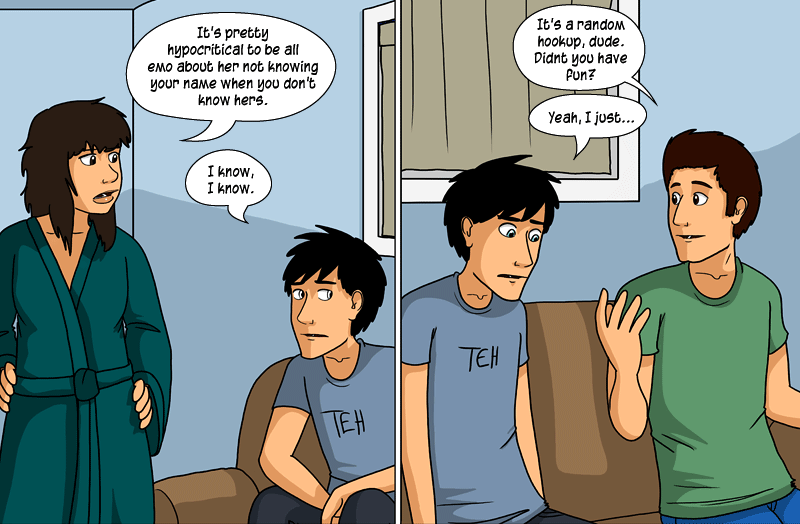Just to follow on from yesterday’s AmCon post about the importance of the liberal arts (and the ensuing discussion over here), I wanted to get a little more specific with a case study.
Health classes and sex ed are usually taught in a just-the-facts style. Here’s some slides of various unpleasant diseases, here’s a poster assignment to make on various drug subtypes, here’s a guide to ways to decrease your chance of infection. These are certainly germane, but they’re hardly the fullness of safe or responsible sex.
But, once you start talking about sexual ethics, everyone gets nervous. After all, the bullet-point, memorize-these-facts approach a lot of schools take to STIs and drugs doesn’t translate well to more nuanced questions about consent, chastity, etc. And there are almost no communities homogenous enough to really trust the teacher to hand down precepts as an authority.
So, why not use more literature to open up the conversation?
Instead of putting up a powerpoint of “How to know if you’re ready to have sex,” why not read memoirs, short stories, and other literary works. Talk about how the characters make decisions and what constraints still seem relevant today (or students might even want to revive) today.
Talk about ways that sex and limits on sex drives plot (analogize it to cell phones foiling the plots of mystery novels) and have a discussion about what kinds of stories and conflicts we think are good for us, and which we’d rather avoid.
Bringing in literature to complement the biology elements of sex ed would help us keep in mind that sex takes place between two people, not just two microbiotic biomes.
And it helps keep students from feeling isolated as they make choices. They can reach back to the stories they’ve read for role models and cautionary tales. It’s easier to aspire to be like Rose Campbell from Louisa May Alcott’s Eight Cousins and Rose in Bloom, than it is to try to be generically “good” or the even more anodyne “responsible.”
It needn’t be all Madame Bovary, either. Just flipping through a recent storyline in the slice of life webcomic Questionable Content (comic #2625 on to #2631) would give students a lot to consider when they make decisions within relationships, and some handy reference points for their feelings.
It’s good for sex ed classes to cover the facts, but looking at the facts through the lens of only epidemiology can still mislead us.
UPDATE: Apparently, in a controlled trial, having couples watch and discuss romance movies was as effective at keeping them together as either of two kinds of marital counseling or therapy.
I talked a little about letting the humanities inform sex ed last summer, when several other Patheos bloggers and I had a roundtable on Sheila Liaugminas’s Relevant Radio show.













